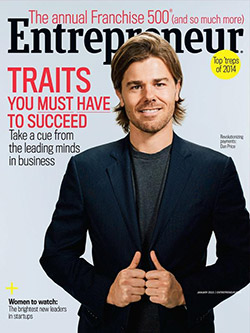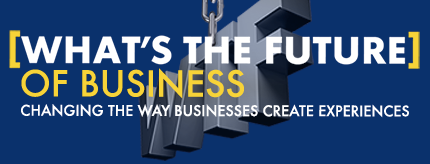
Earlier in the year, Brian Solis spent some time with Jason Ankeny. Jason was, at the time, writing an article for Entrepreneur on “the next five years” of business for the print edition. He assembled a pretty stellar cast to serve as his panel and Brian was more than excited to join in.
Here’s an excerpt below, but you can read the entire article here.
The Future of Generational Relations
The older generation is making decisions based on their experience and how they went through life—going to college, getting a job, getting married, buying a house and buying a car. Today’s generation is rethinking whether or not college is important, and whether they want full-time jobs or want to be entrepreneurs. They’re rethinking whether to buy cars because they can take Uber everywhere. They’re shedding belongings because they don’t want the burdens of ownership. Their value system is profoundly different, and they’re forming relationships with products and services based on the things they value and appreciate. They want authenticity, they want transparency, and they want to know your business is thinking about questions like sustainability.
The Future of Customer Experience
The way we go about business is slowly dying. Connected consumerism says that things are not only changing, but are so radically different that the business models we have today cannot support a much more dynamic approach to the market. Even if you’re over the age of 35, if you use an iPad or social networks or apps, you slowly start to act like a Millennial. It influences how you make decisions and where you go for information. All of this starts to add up differently from being a traditional customer: The touchpoints, the screens we use, our expectations—we become more demanding, more informed and more connected.
The research you do around the digital customer experience allows you to understand where you’re going to make your investments. A lot of times, people go to market believing that the functions of sales and marketing and services are just the bolt-on pieces to go and be successful around your vision and your product, when in fact, it’s the opposite.
The Future of Entrepreneurial Vision
Ideas don’t really count until you can demonstrate relevance, engagement and momentum. Entrepreneurs who have a purpose will succeed, as opposed to entrepreneurs who have a product. If you don’t understand this, you’re destined to be irrelevant because you never tried to be relevant in the first place.
The Panel:
Tom Cheesewright founded the applied futurism practice Book of the Future and is a regular presence on U.K. TV and radio. He previously launched a series of technology-driven startups, including venture-backed big data analytics firm CANDDi.
Peter Diamandis is chairman and CEO of the XPrize innovation competition, executive chairman of Silicon Valley-based teaching organization Singularity University and the founder of more than a dozen high-tech organizations.
Steven Kotler co-founded and serves as director of research for the Flow Genome Project. Diamandis and Kotler have teamed on two books: Abundance: The Future Is Better Than You Think and Bold: How to Go Big, Create Wealth and Impact the World.
Bob Johansen is a distinguished fellow at nonprofit research organization Institute for the Future. His latest book, The Reciprocity Advantage: A New Way to Partner for Innovation and Growth (written with Karl Ronn), argues that businesses can gain a competitive advantage by sharing assets and forming collaborative relationships.
Connect with me… Twitter | LinkedIn | Facebook | Youtube | Instagram | Pinterest



Leave a Reply